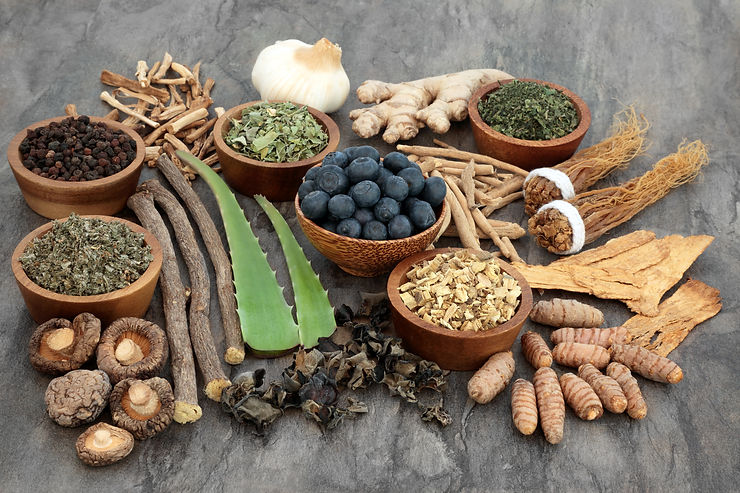The Power of Adaptogens: Millennial Ingredients for Integral Wellness
In the modern era, where stress and daily demands are constantly increasing, adaptogens have emerged as a promising solution for improving health and well-being. These natural ingredients, which include plants, fungi, algae and roots, are known for their ability to help the body adapt to stress and maintain balance. Its incorporation into the food and gastronomy industry is not only transforming how we eat, but also how we take care of our mental and physical health.

The use of adaptogens dates back thousands of years in diverse cultures around the world. In traditional Chinese medicine, ingredients such as ginseng and reishi have been valued for their revitalizing properties. Indian Ayurvedic medicine has used ashwagandha and amla for centuries to strengthen the body and mind. Even in Siberia and other regions of Eastern Europe, plants such as rhodiola rosea have been used to increase physical and mental resistance under extreme conditions. This historic legacy of medicinal use underscores the importance and efficacy of adaptogens, which are now being rediscovered and validated by modern science.
Origin of the different adaptogens
Adaptogens come from a variety of natural sources, each with their own characteristics and benefits. Among the most notable adaptogenic plants are schisandra, known for its sweet and sour berries that improve resistance to stress and increase energy, and tulsi or holy basil, used in Ayurvedic medicine for its calming effects and its ability to improve mental clarity. Another notable example is Rhodiola Rosea, which grows in cold regions of Europe and Asia and is renowned for its ability to increase resistance to fatigue and improve mood.
Adaptogenic fungi also play a crucial role. Lion's mane, with its ability to improve cognitive function and memory, is becoming popular in modern cuisine, where its fleshy texture makes it ideal for various culinary preparations. Cordyceps, on the other hand, is known to increase energy and improve physical performance, while reishi is valued for its immunomodulatory properties and its ability to promote longevity.
Roots, such as ashwagandha, are another important group of adaptogens. This root, essential in Ayurvedic medicine, is known to reduce stress and anxiety, improve sleep quality and increase physical endurance. Ginseng, widely used in traditional Chinese medicine, is another example of an adaptogenic root with numerous health benefits, including increased energy and improved cognitive function.
Although less common, some algae also have adaptogenic properties. For example, chlorella and spirulina are being researched for their health benefits, including detoxification and immune system support, although this field is still emerging and promises to be an area of great interest in the future.
Classification by Uses and Benefits
Adaptogens can be classified according to their various uses and benefits. For cognitive improvement and memory, lion's mane and ginseng are particularly effective. These ingredients contain compounds that promote nerve cell growth and improve brain function. In terms of reducing stress and anxiety, ashwagandha and tulsi are highly valued for their calming effects and their ability to improve mental well-being. Schisandra and rhodiola rosea are also useful in this area, as they improve resistance to stress and increase energy.
For increasing energy and physical performance, cordyceps and ginseng are very effective. These adaptogens help increase the production of ATP, the energy molecule in cells, which improves physical performance. When it comes to strengthening the immune system, reishi and amla are great options. Reishi is known for its immunomodulatory properties, while amla, rich in vitamin C and antioxidants, strengthens the immune system and improves digestion.
Adaptogens represent a fascinating convergence between tradition and innovation in the field of food and health. With a rich history and a promising future, these natural ingredients are well-positioned to transform our diet and improve our physical and mental well-being. The food industry and gastronomy are beginning to explore and adopt adaptogens, not only for their health benefits, but also for their ability to enrich the culinary experience. As we continue to discover and understand their properties, we are likely to see an increasing integration of adaptogens into our daily diet, offering a natural and effective solution to modern challenges.








